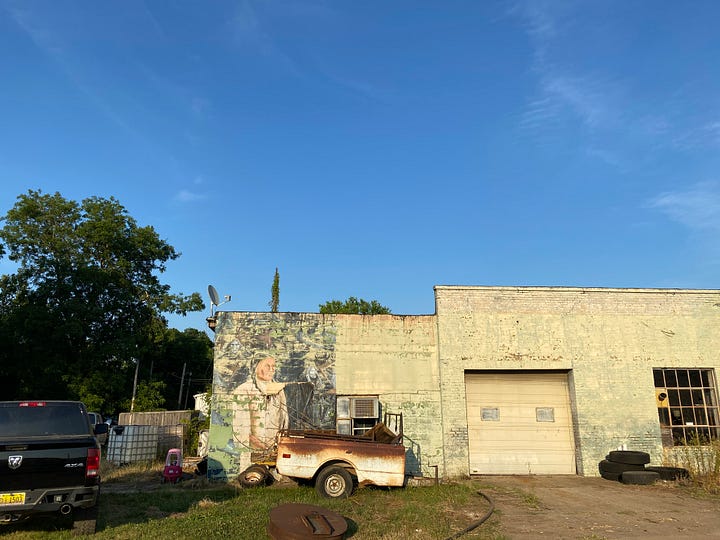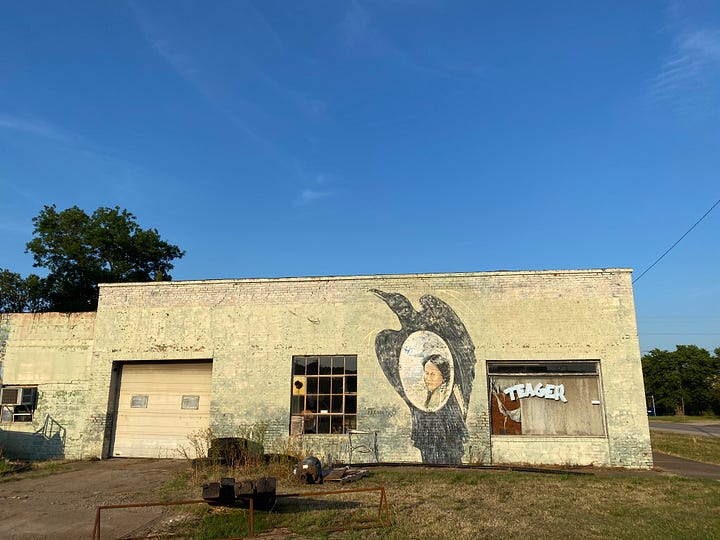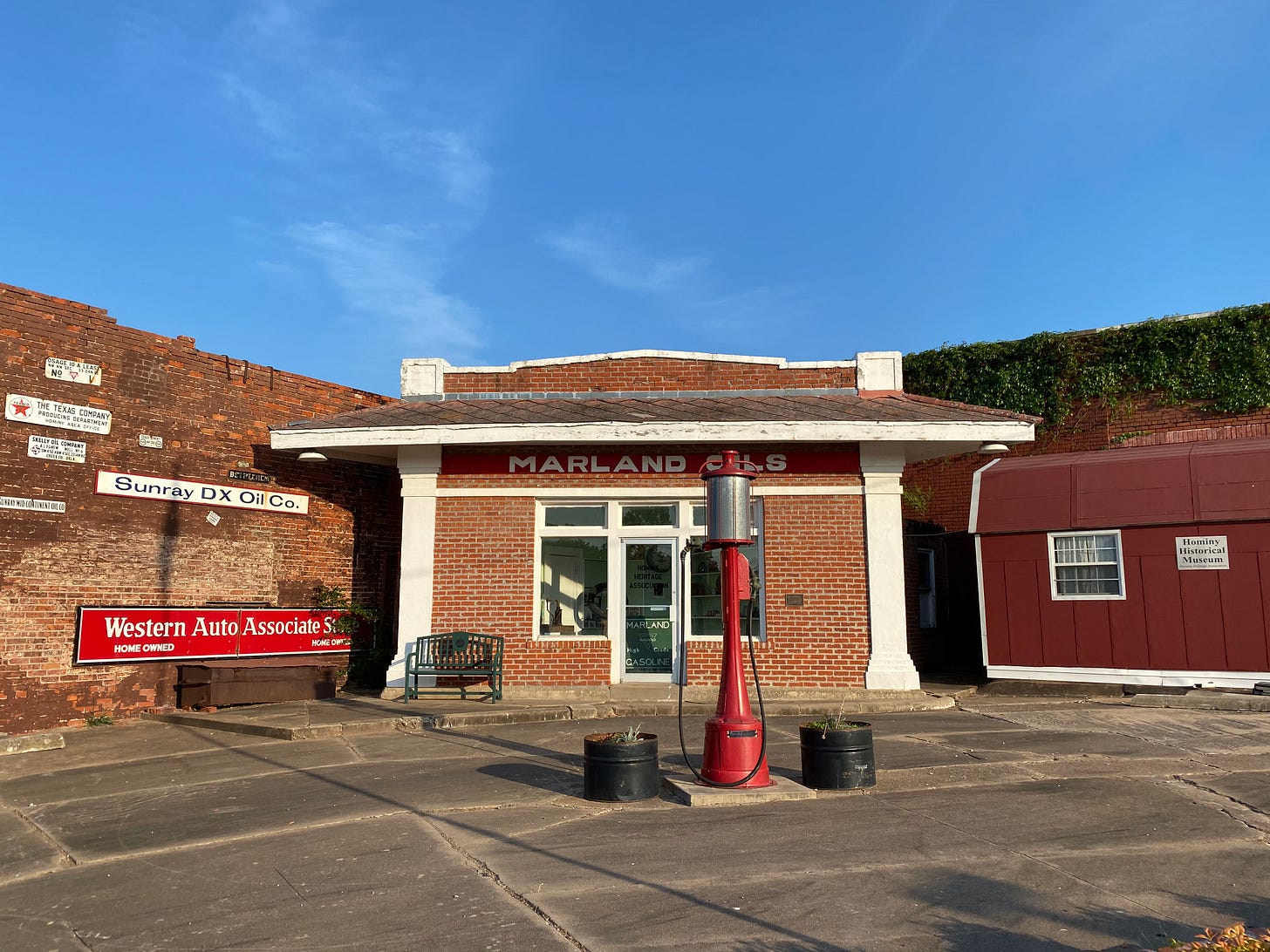Brian just needs a short ride to paradise
Story No. 5, about what happens when you fail big-time in a teeniny little town. Another tale from my 35,000 mile road trip into the heart of the early pandemic, 2020
Hominy, Oklahoma, 98 degrees
Brian Choate lost his oilfield job just before the pandemic shut things down. And then things got worse. All videos and photos by Stephen
In Hominy, Oklahoma, population 3,208, I sat on Main Street in a folding camp chair -- with cup holders -- that I’d bought a few days before. The 98 degree air smelled like diesel and hay. Five people passed by over the course of an hour, and each dismissed my friendly hello with a quick smile. And then a guy, early 30s, said “Hey, howdy, I saw you trying to talk to those people, what’s up.”
He sat in the chair opposite me, reddish beard, receding hairline, baggy muscle shirt and basketball shorts. He looked to be about 5’6”. He was broke, sweaty and homeless. His name was Brian Choate.
“This pandemic has knocked my world out from under me,” he said. “And it happened pretty quick.”
“Like a few weeks?”
“Days.”
Six weeks before, he had lost his job as an oil field roustabout. The company that let him go hadn’t done the proper paperwork, so he couldn’t collect unemployment. A couple of days later he woke up and no longer had a home. He’d been on the street for a month, “hustling to see what I can do.”
His voice was low, yet whiny, with a slow Oklahoma accent.
“Are you worried about the virus? Do you take precautions?” I asked.
He wasn’t wearing a mask. Neither was I.
“In my situation, I can’t really take any precautions,” he said. “I mean, what am I gonna do.”
He shrugged. Precautions were for people with homes and money to spare.
He hadn’t known a single person who’d been sick. All the virus had done to him was take his house and his job, his car and security. The people in Hominy weren’t going to help him. Even his girlfriend’s mom didn’t want him in her house.
“After all the things I’ve done for people around this place, I can’t believe how none of them want to help me at all,” he said.


I asked if there were many other homeless people in Hominy. He said he just kept to his own business, and wouldn't know the answer to that.
“A lot of them, they had money set aside, or they’re rich. I’m not like that. I’m just a paycheck to paycheck kind of guy.”
He was down, but he had a plan.
“I’m gonna try to get up enough money to get over to Cleveland and get me a hotel for a month,” he said.
I imagined him going to Ohio to work in a factory, or driving for UPS. He needed a car or bus fair for the 15 hour ride. But it turned out he meant Cleveland, Oklahoma, just 12 minutes away, by car. On foot, maybe 2.5 hours. There were oil jobs there. There was a McDonalds and a Walmart Supercenter. And nobody would look down on him as he slept in the luxury of a rundown motel.
I gave him ten dollars and a few minutes later saw him walking up the opposite sidewalk in his flip flops carrying a Big Gulp.



Stephen- Beyond the $10 to Big Gulp story, I like the idea that your friend came all the way from the UK to visit with his OK roots. Origins have a lot to do with the meaning of life. Hope you're well this week? Cheers, -Thalia